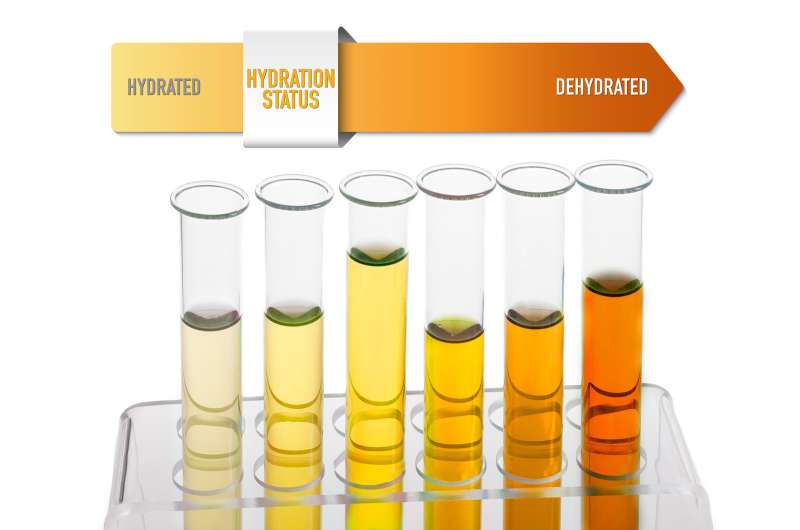Credit: Queensland University of Technology
With Queensland and other parts of Australia experiencing unseasonal heatwave conditions, a QUT health expert has warned people to stay cool and well hydrated and check on family and friends, particularly infants, those who may be ill and the elderly.
Professor Gerard FitzGerald, from QUT's School of Public Health and Social Work, said heatwaves were the second highest cause of death after pandemics in terms of major threats to public health, and this year they are posing a threat sooner than normal.
Key points:
- Dehydration is the greatest danger from heatwaves. Drink enough water to have relatively clear urine which indicates you are well hydrated
- Dry conditions such as we are experiencing are more dangerous than humid conditions in a heatwave because we dehydrate more rapidly as water in our sweat and breath evaporates
- Heatwaves can also cause heat stroke which occurs when the body overheats and cannot regulate its temperature.
- Dehydration can trigger heart attacks or strokes and aggravate existing diseases such as kidney failure.
- If you are drinking alcohol, match each glass with the same amount of water
- Seek cool environments. If you don't have air-conditioning at home, visit a local shopping centre or cinema. Fans can be helpful and in the current dry conditions, a little water on the skin will help you stay cool.
- Avoid vigorous exercise and if outdoors, look for shade; wear cool cotton clothing, a hat and sunscreen
- Check on relatives and elderly neighbours
- Make sure your pets have shade and water
"Parts of Queensland, including the south-east are predicted to reach the mid-to-high 30s and even 40 degrees today which is pretty extreme for September," said Professor FitzGerald, editor of Disaster Health Management: a primer for students and practitioners published earlier this year.
"People under stress from heat can become quite distressed and alcohol can contribute to dehydration which in turn can lead to aggressive behaviour. If you are having an alcoholic beverage on a hot day then ensure you keep your water intake up as well.
"However, those most badly affected or likely to die during heatwaves are people with chronic diseases including the elderly and those with diabetes, renal failure or cardio or cerebro-vascular disease.
"The signals to be aware of that will alert you your body is dangerously dehydrated include dizziness, nausea, looking flushed, skin not bouncing back, aggression, sleepiness and high temperature."
If any of those are causing concern, you should seek medical assistance.
Provided by Queensland University of Technology























